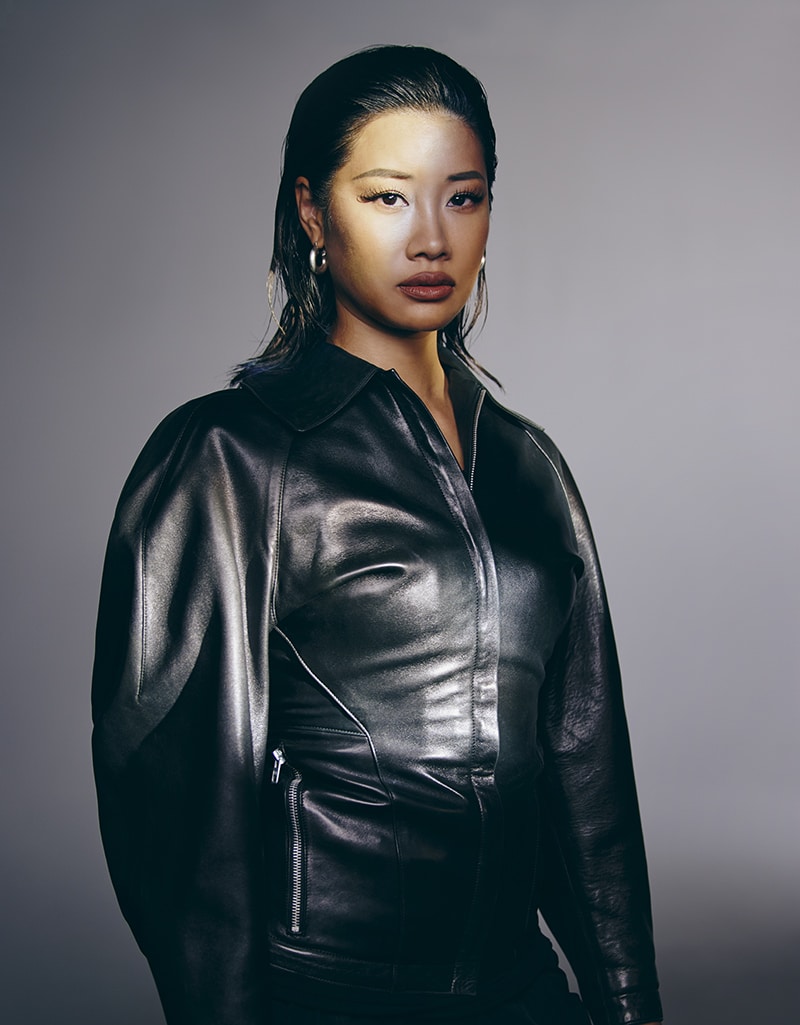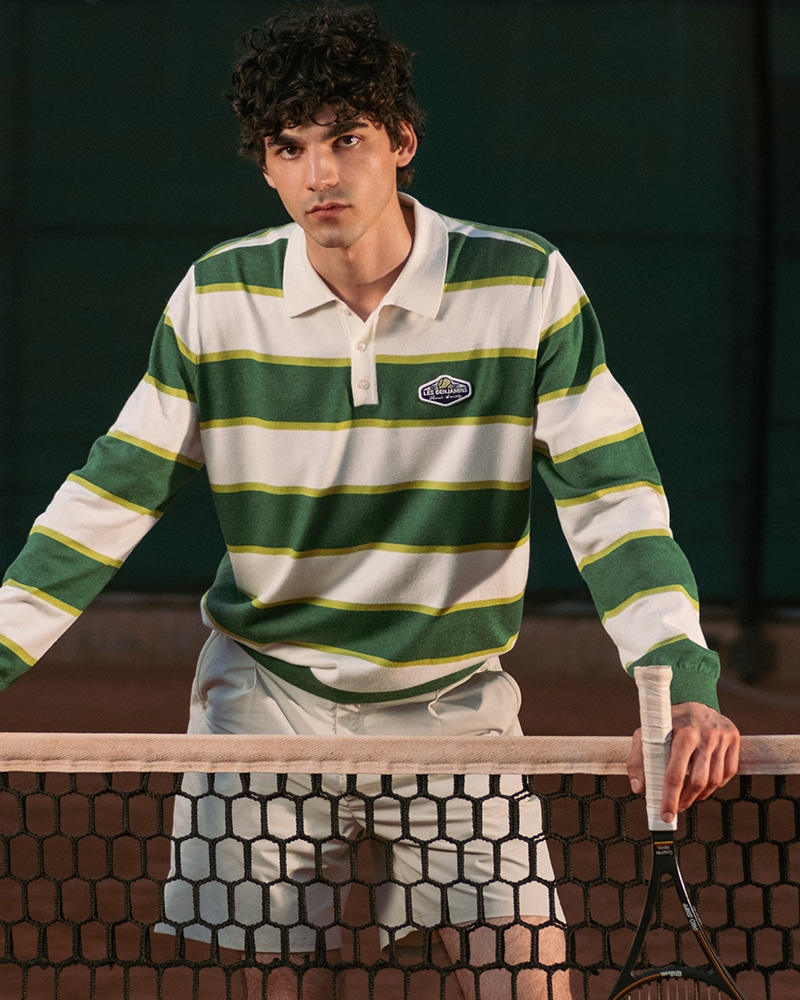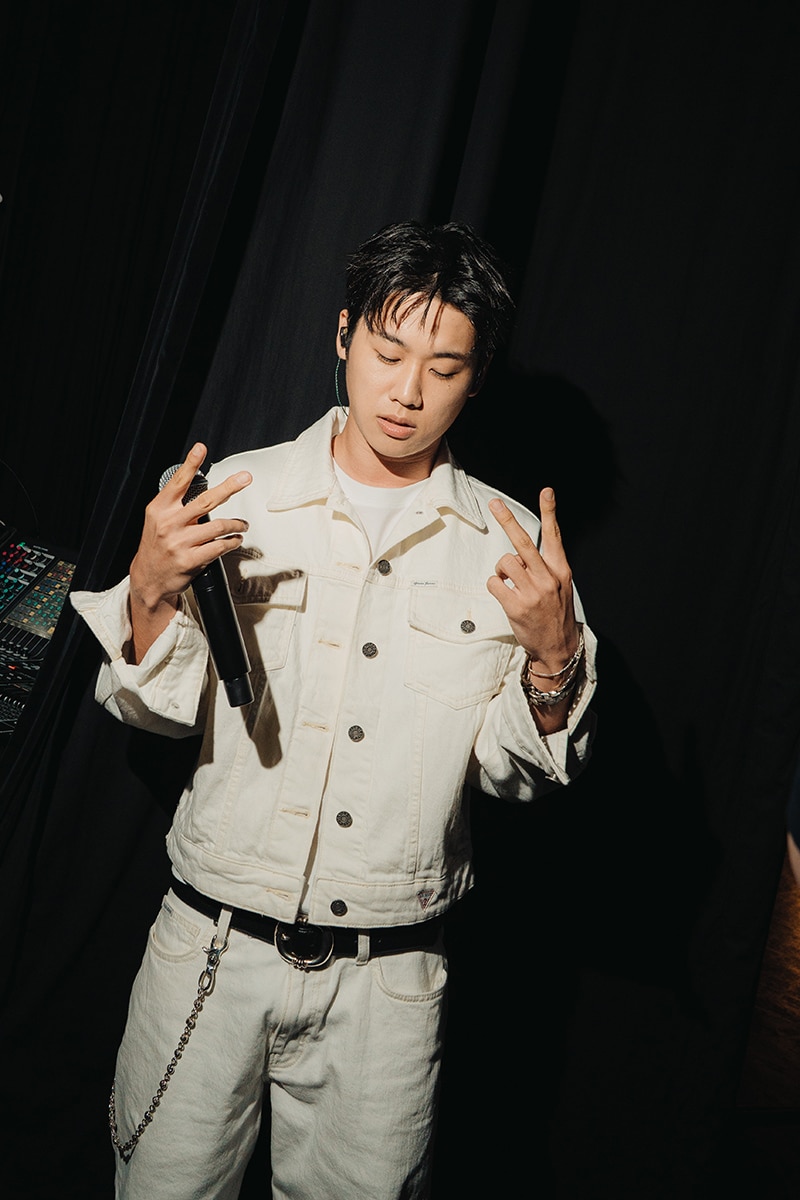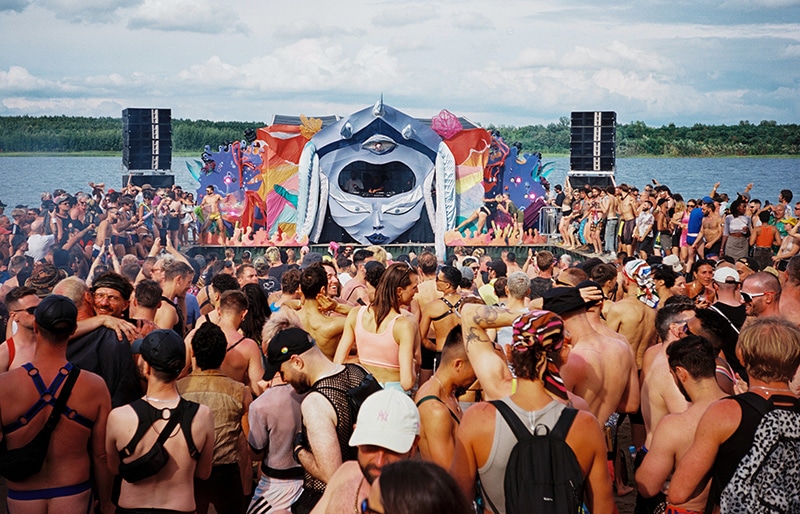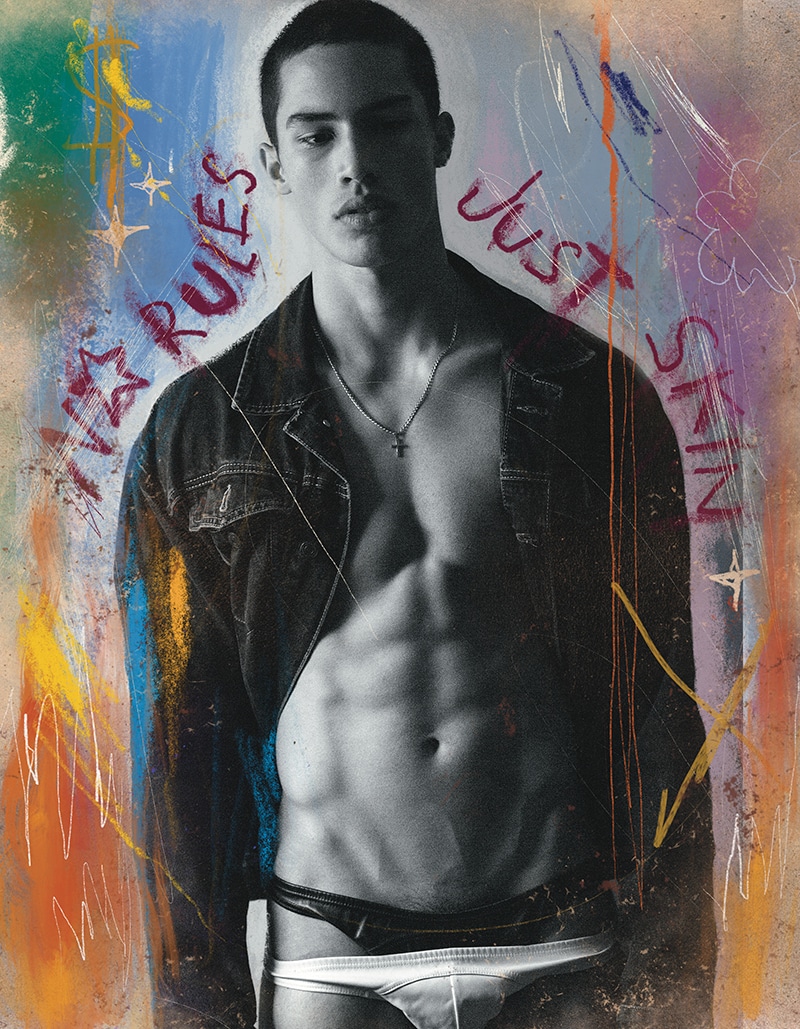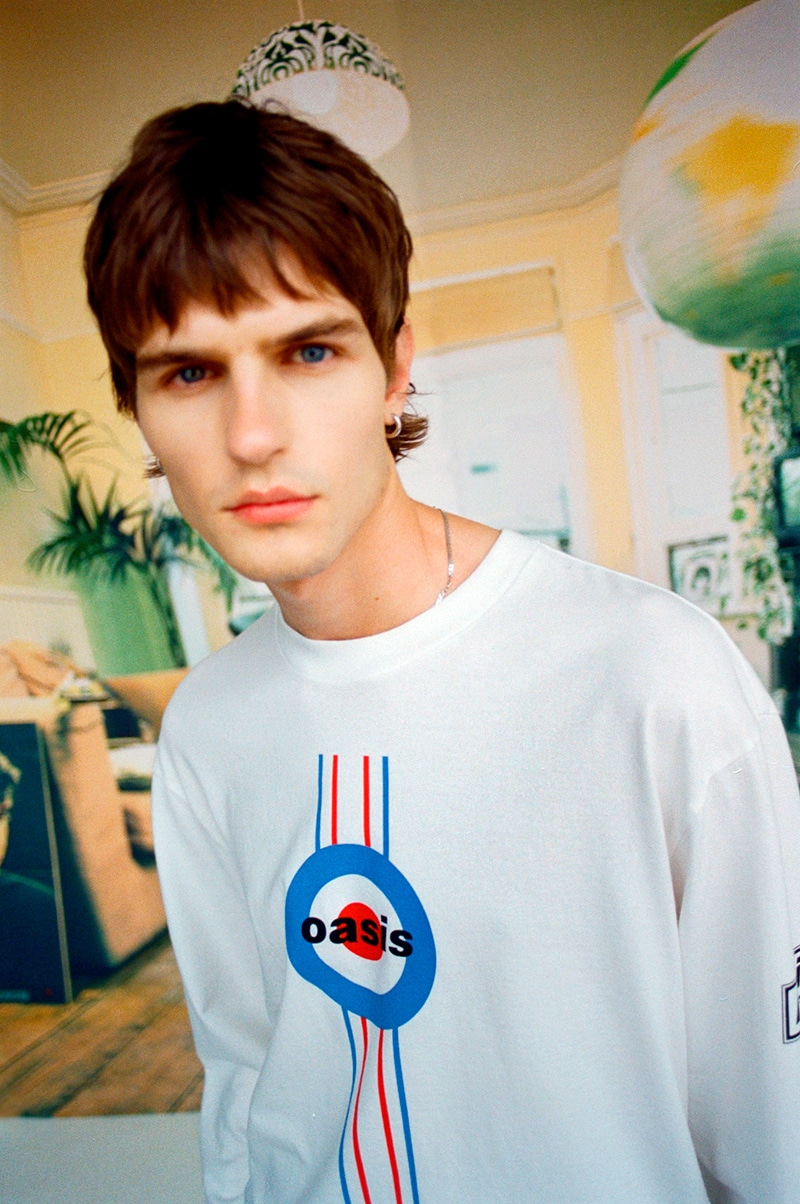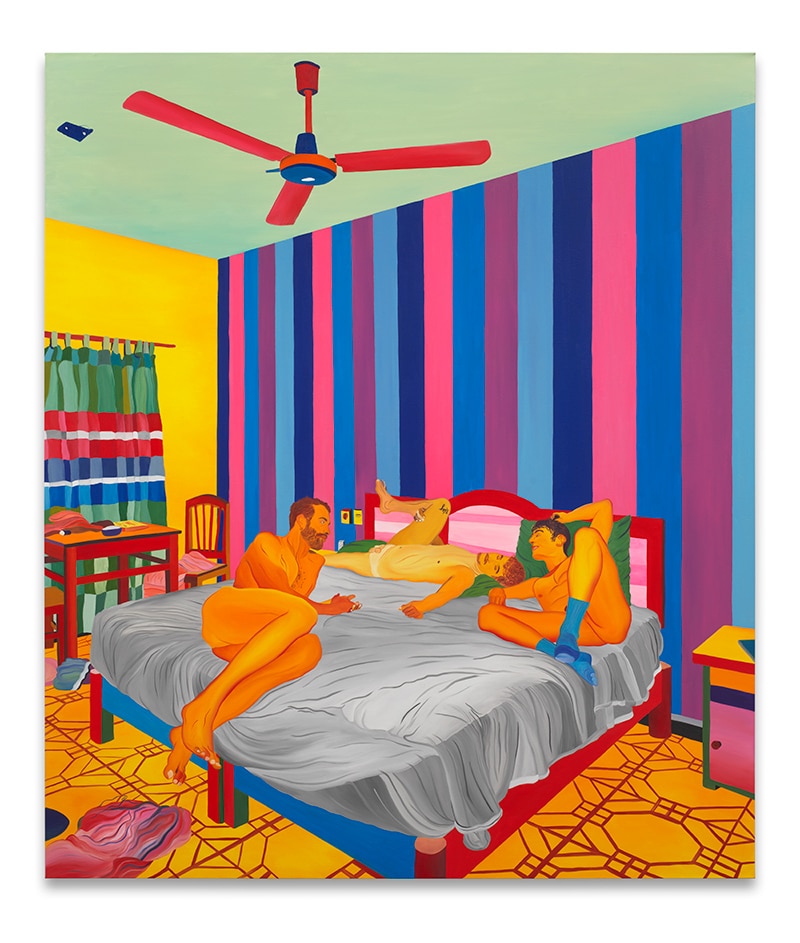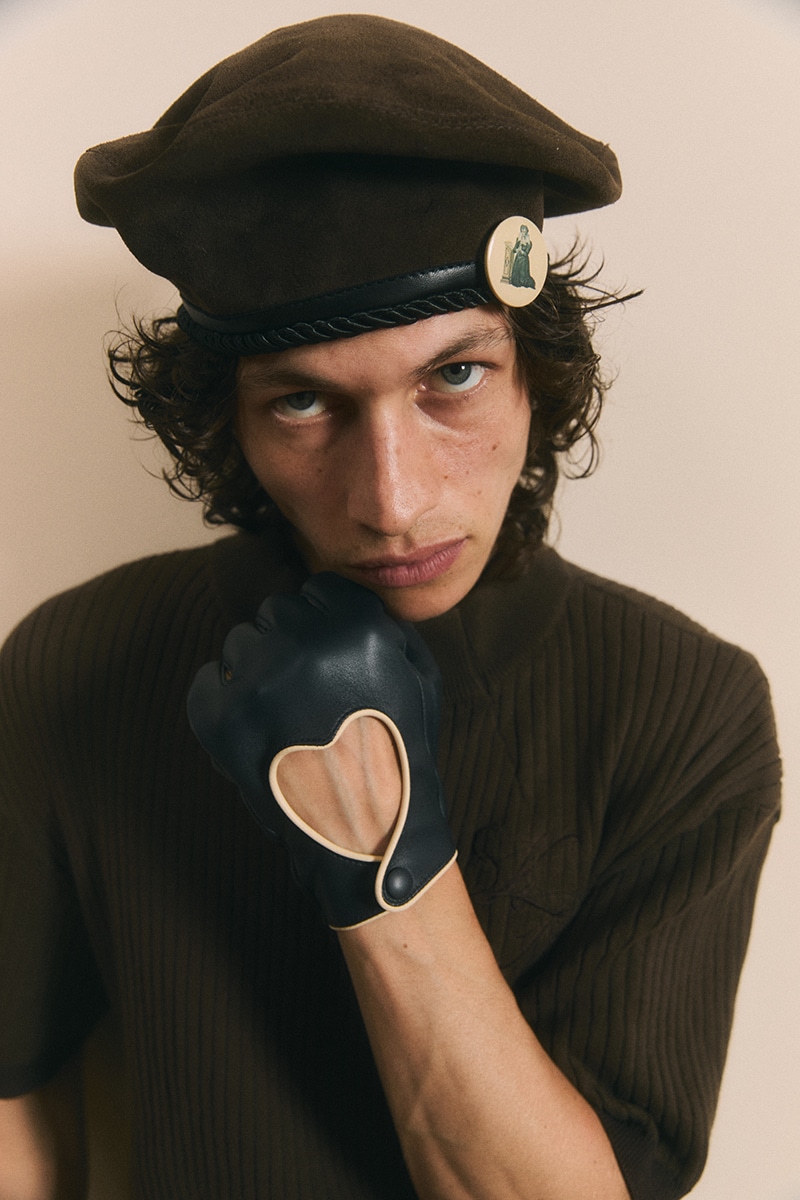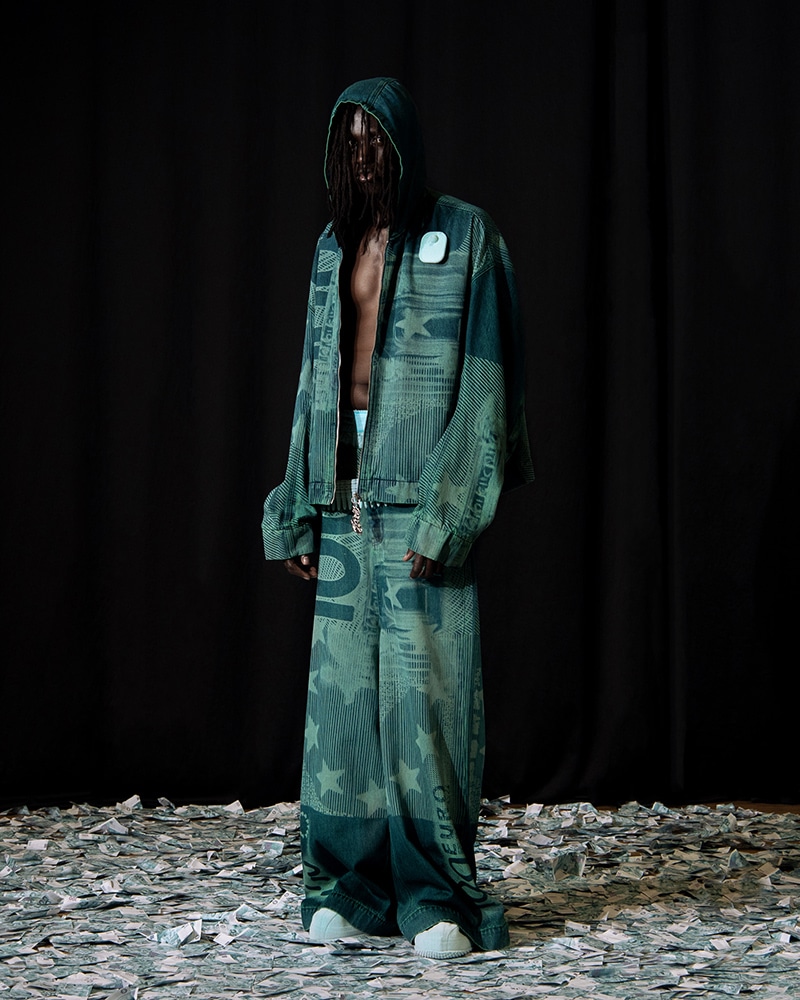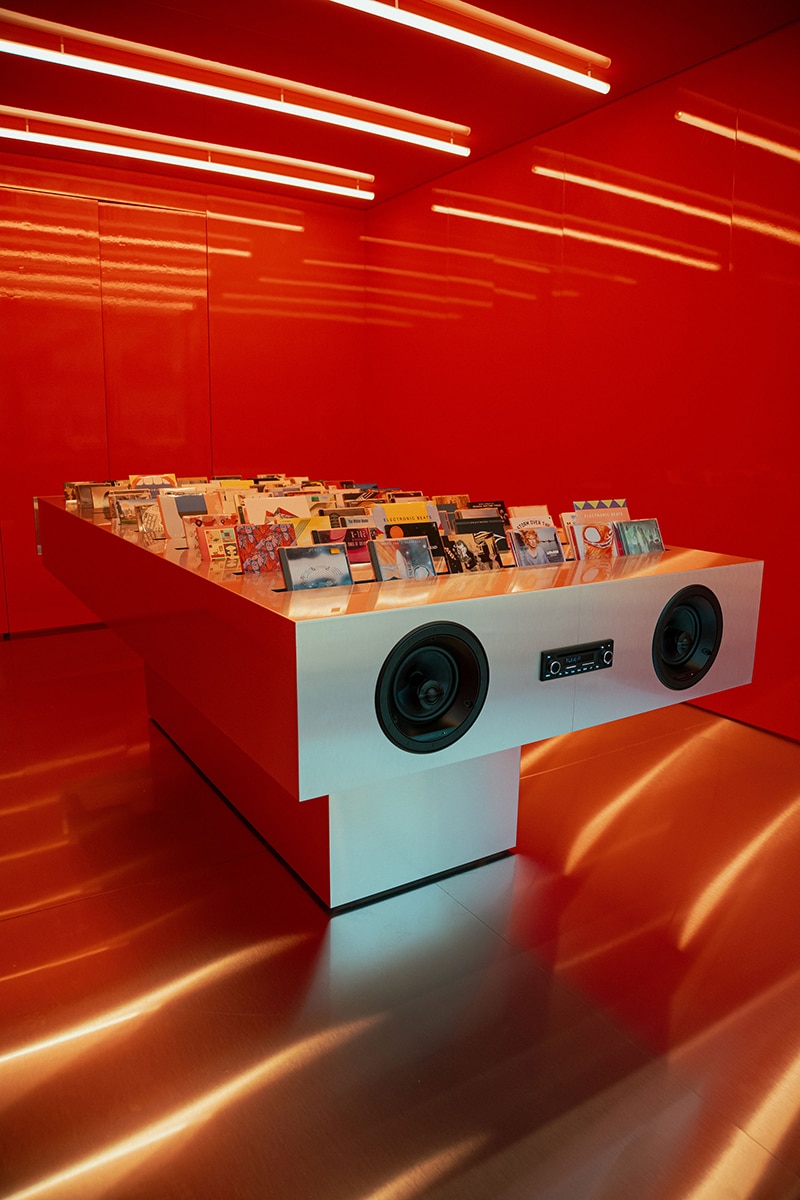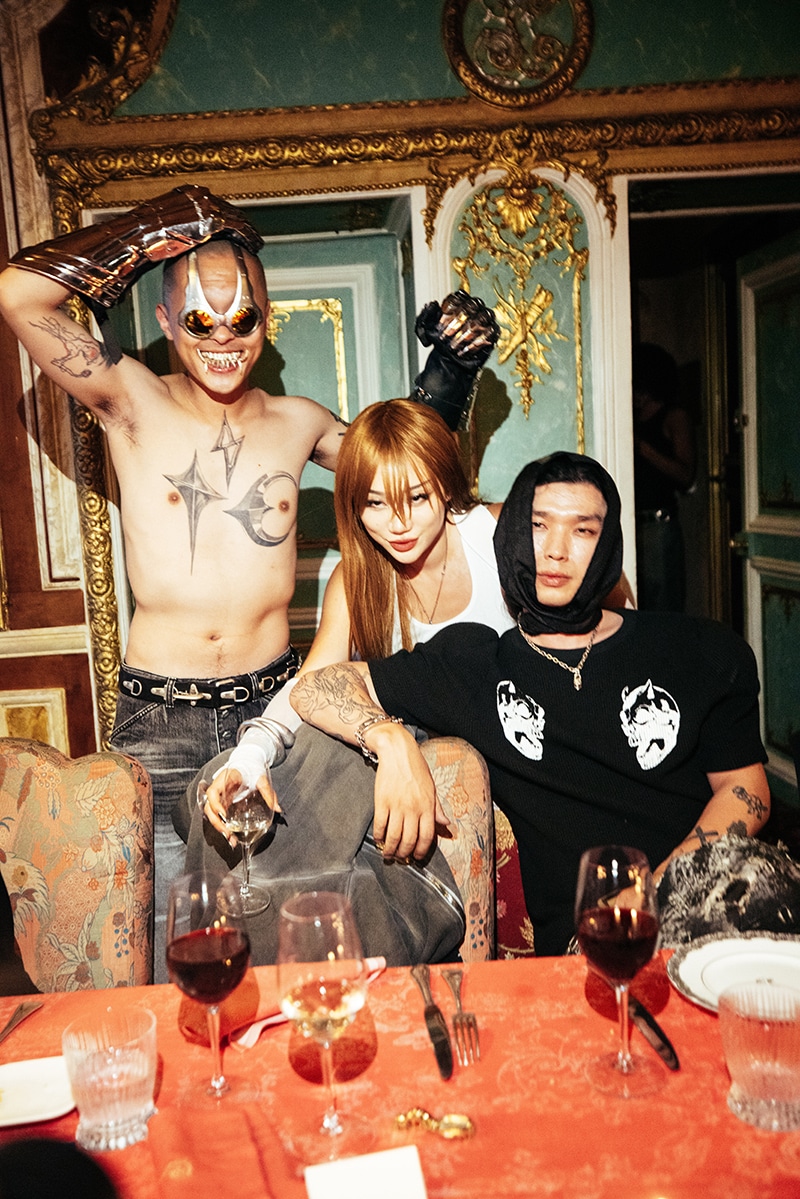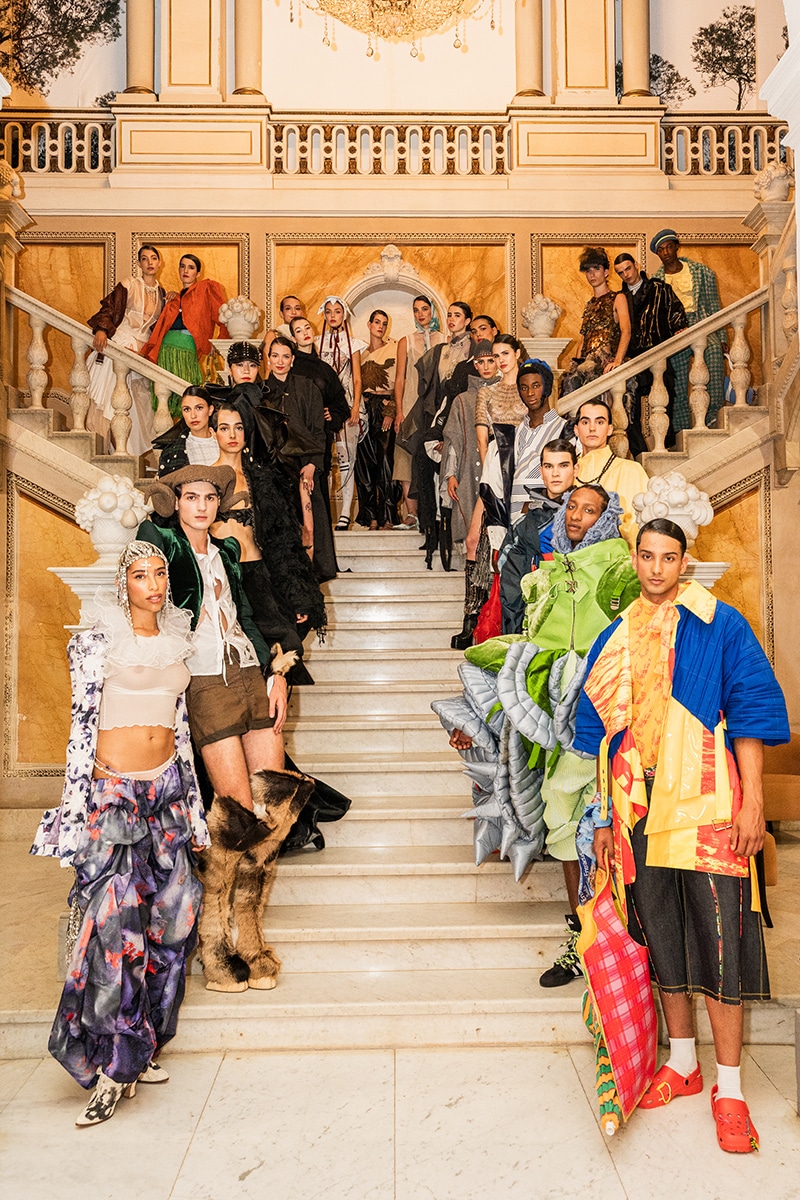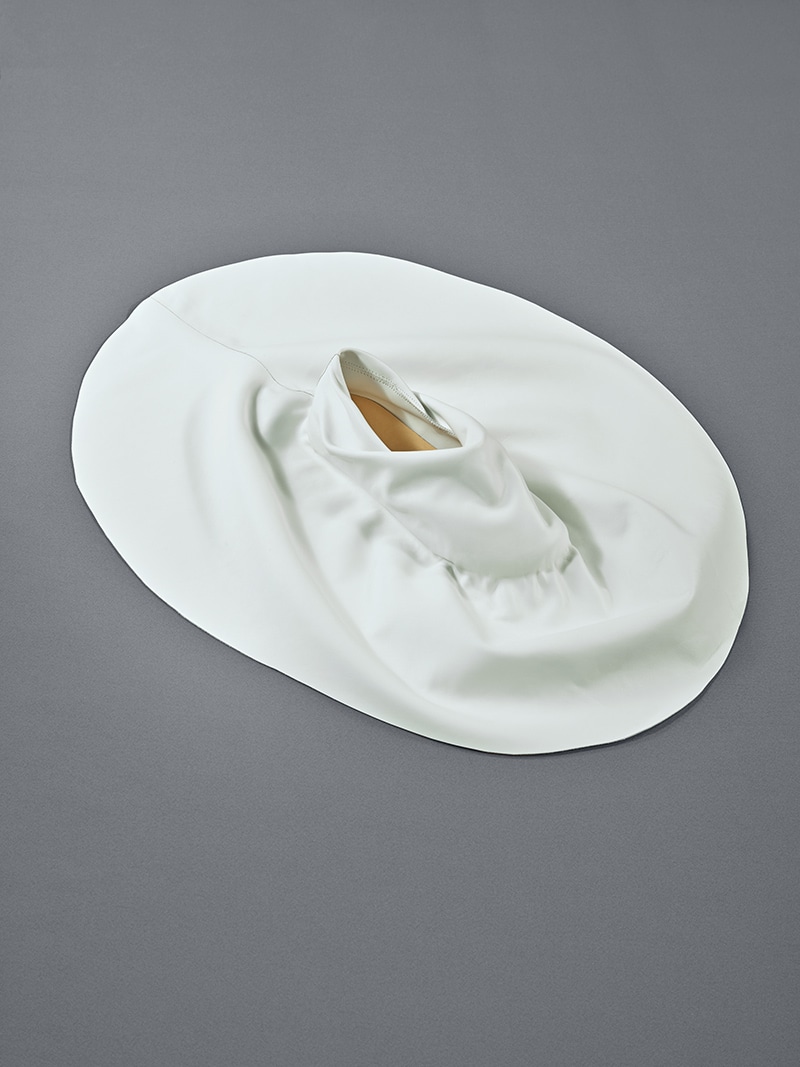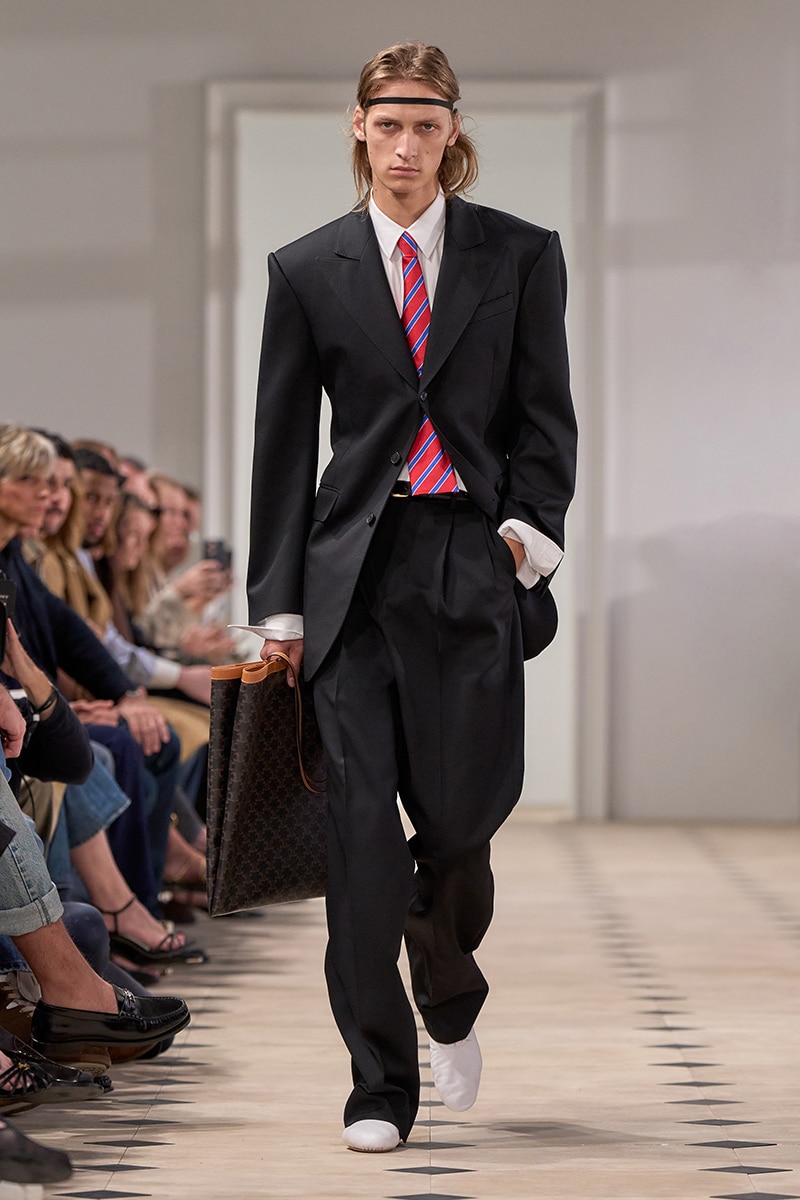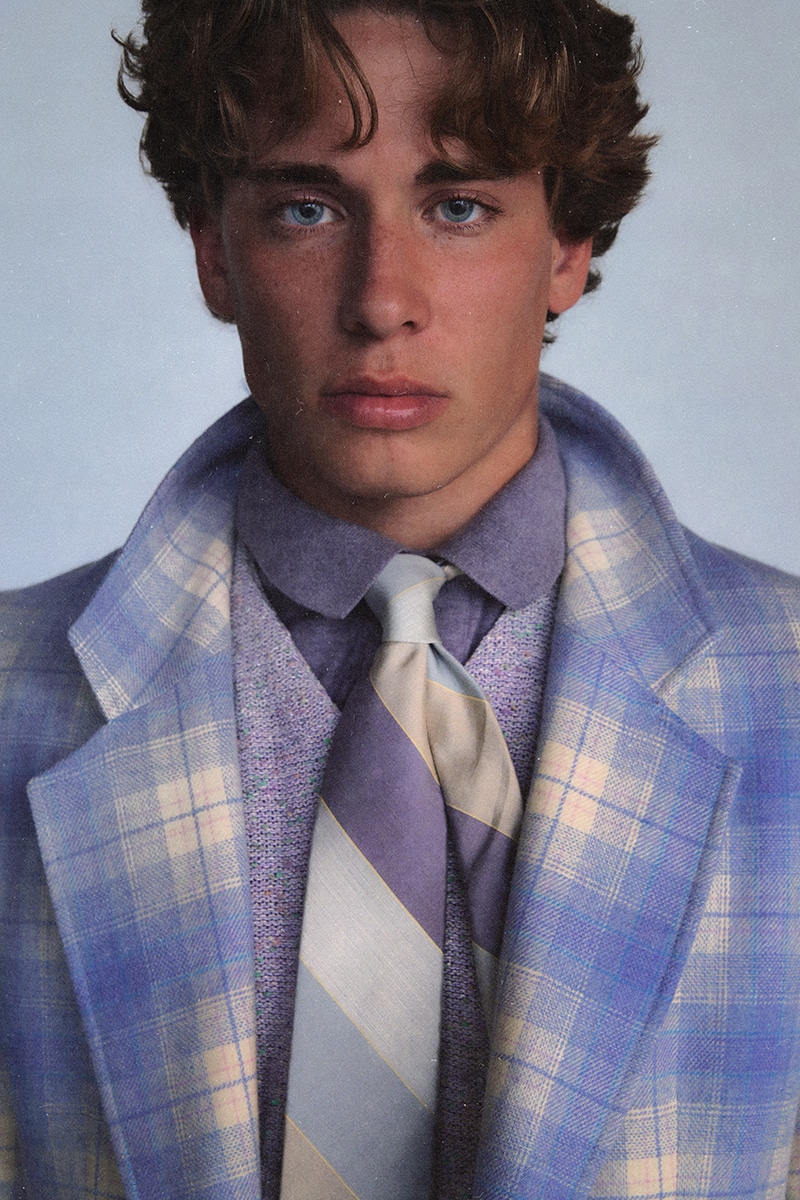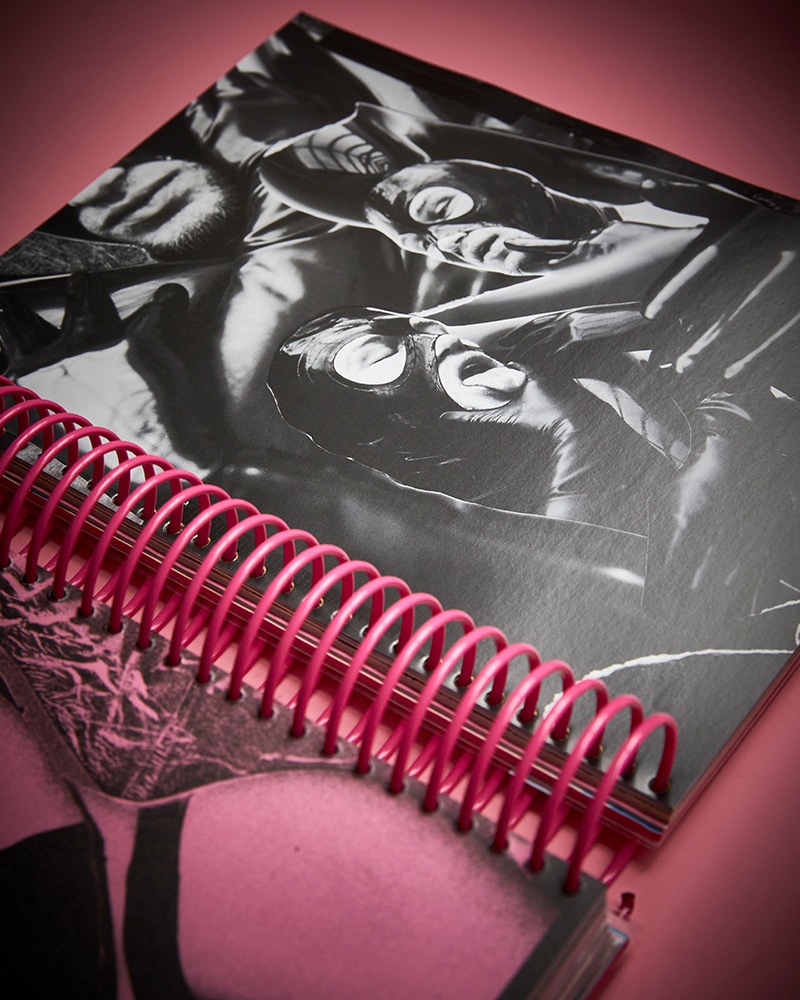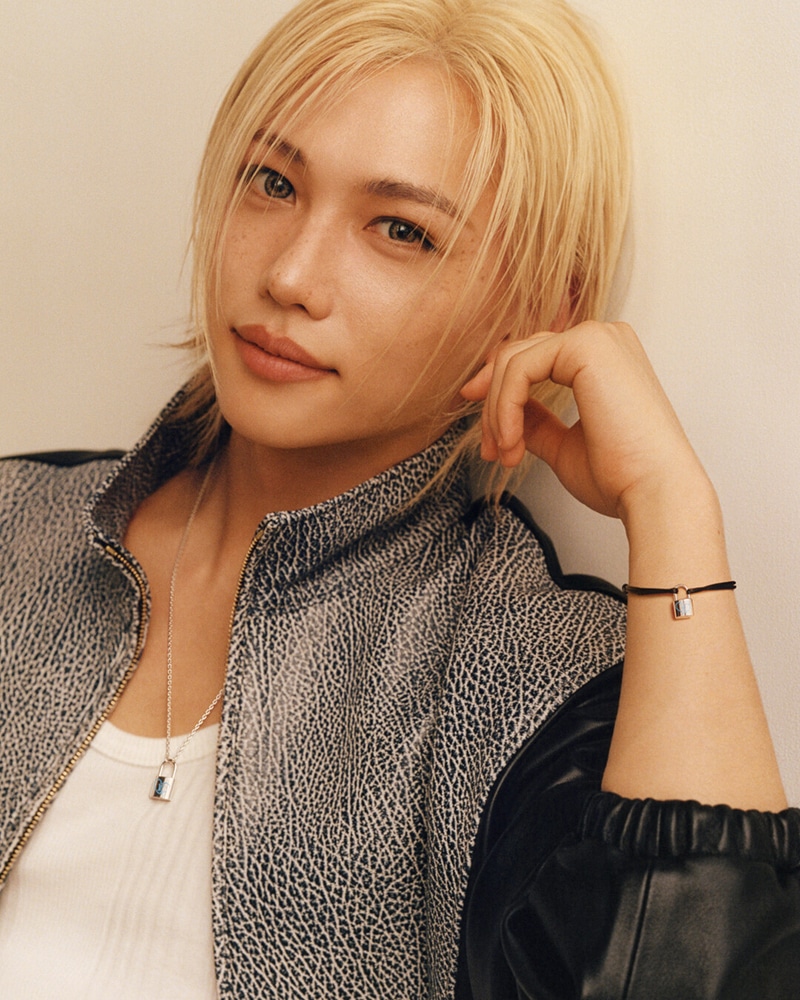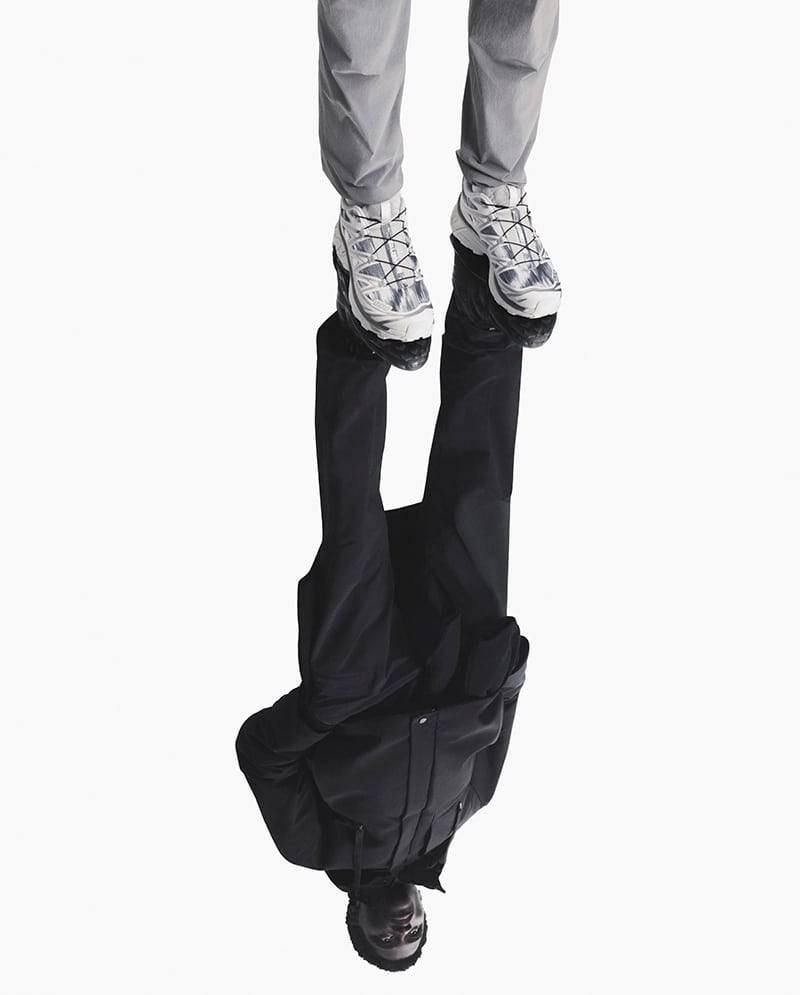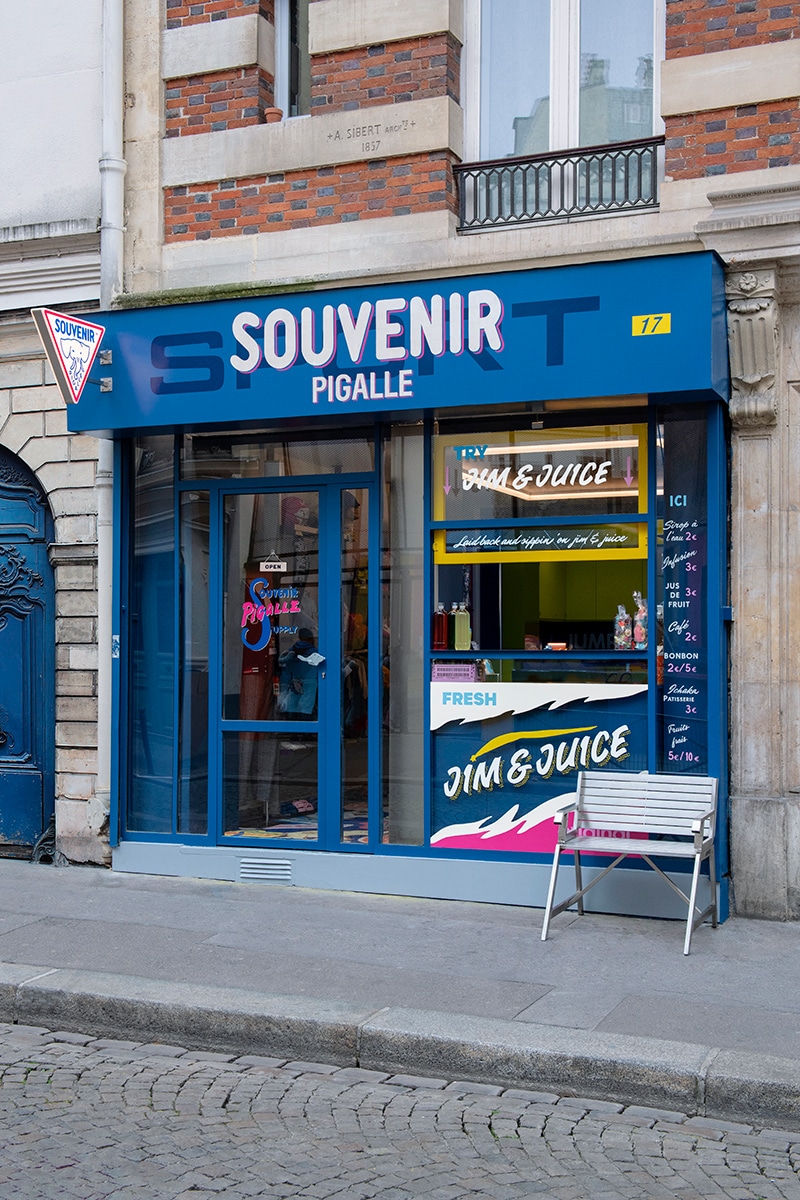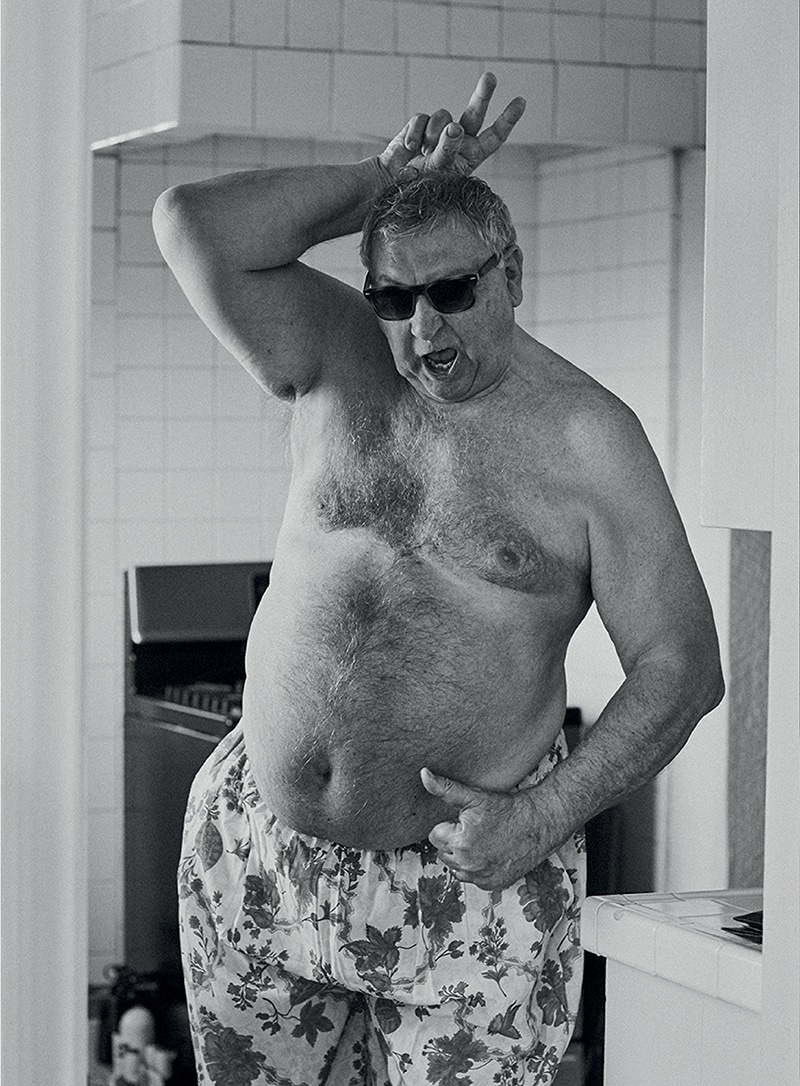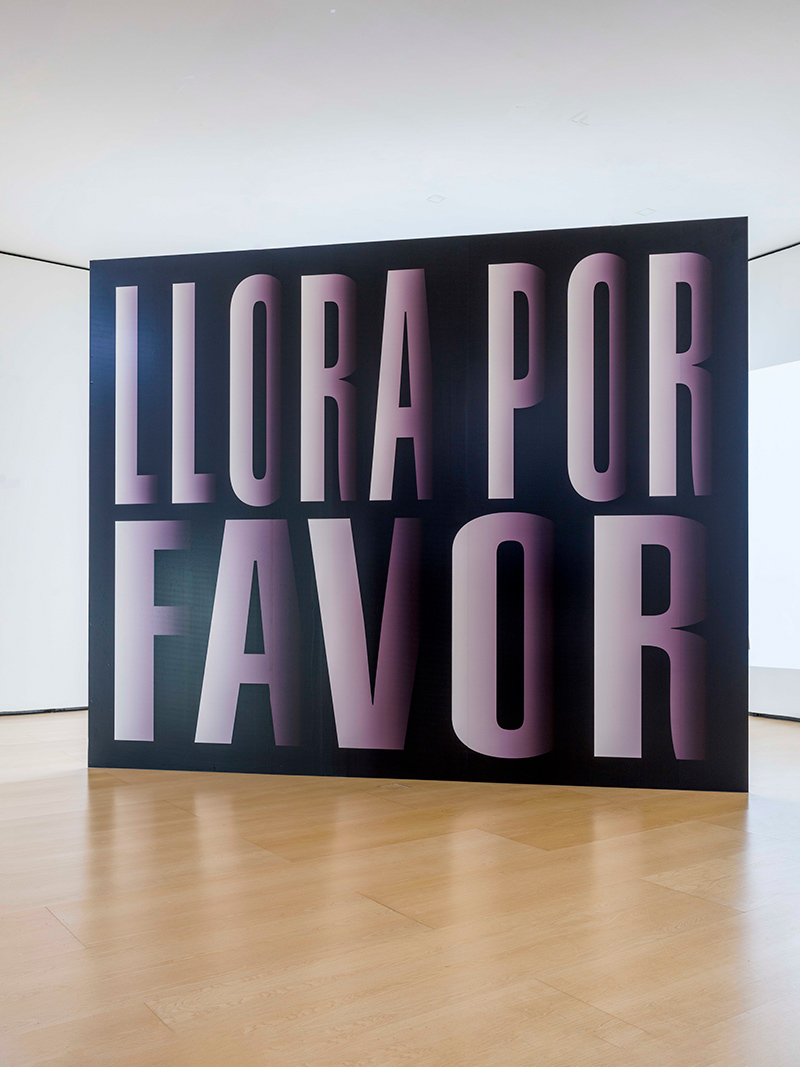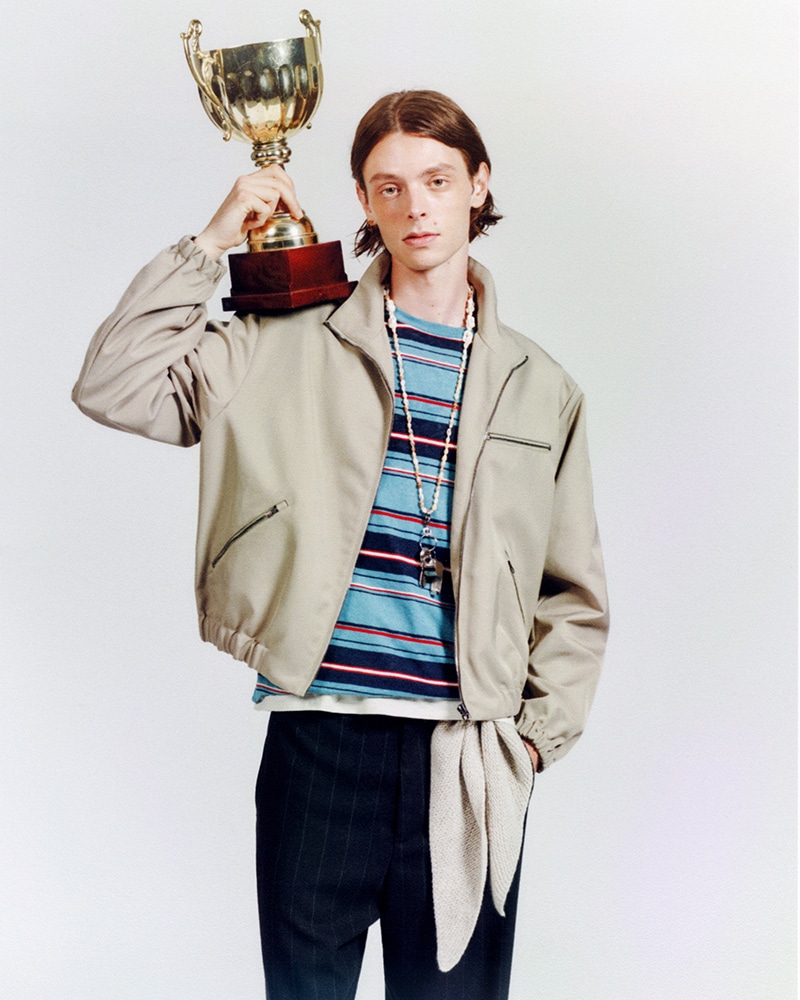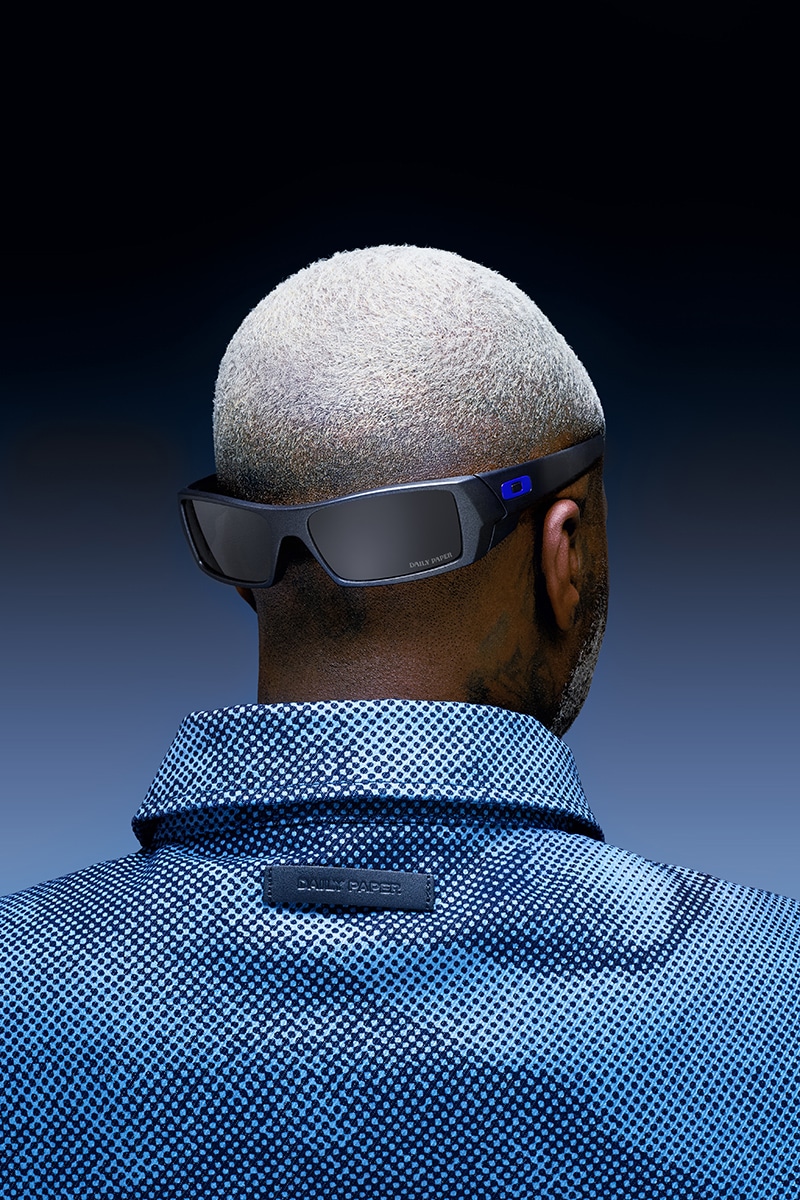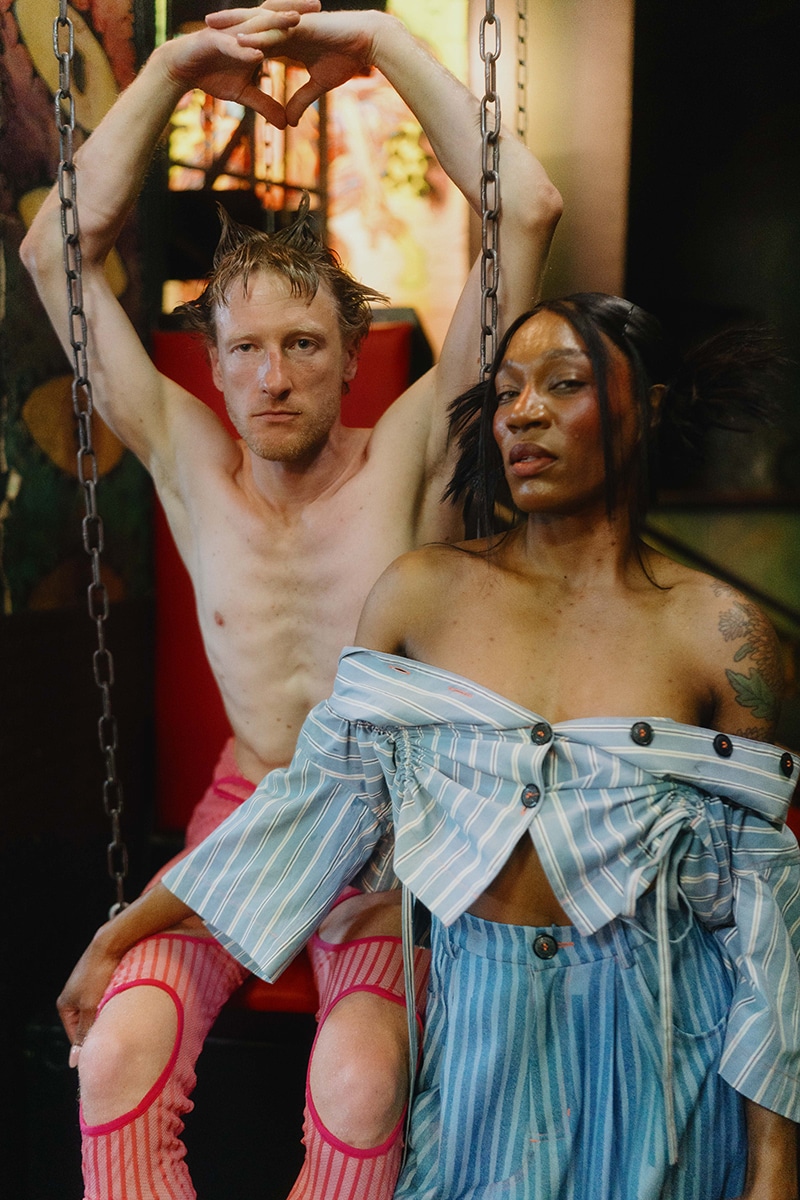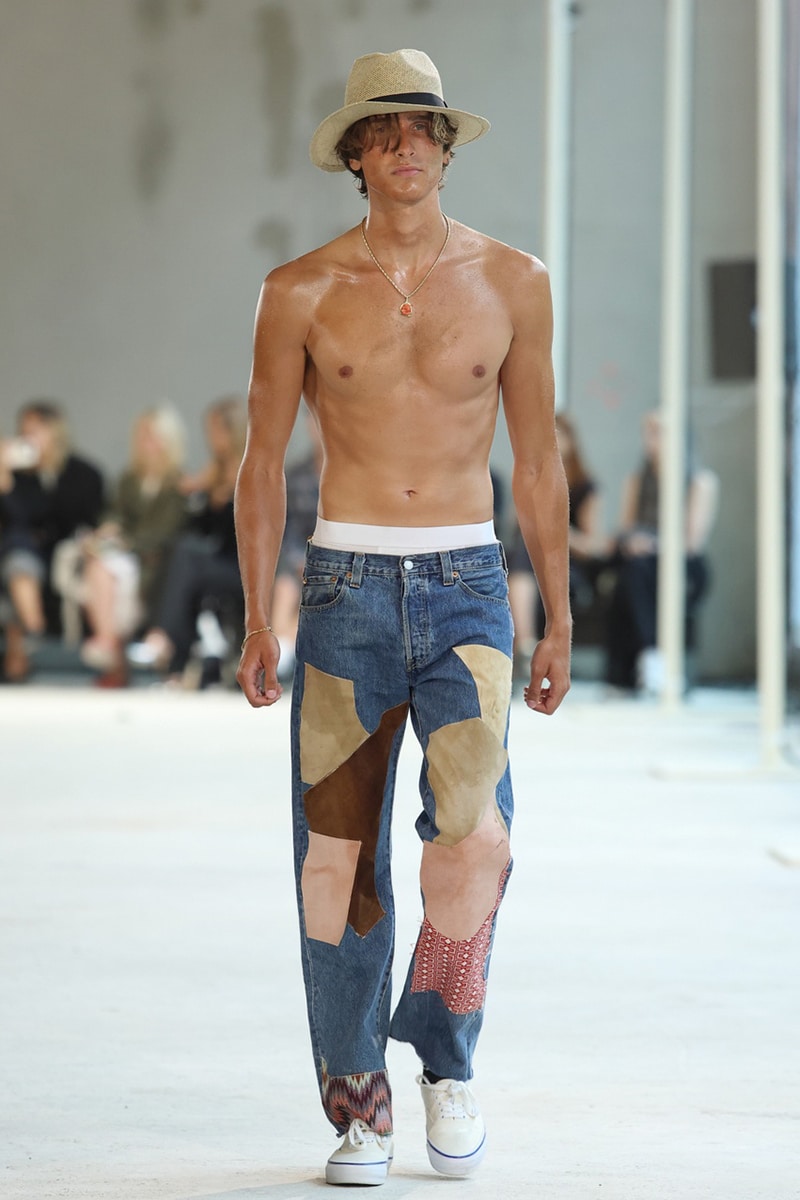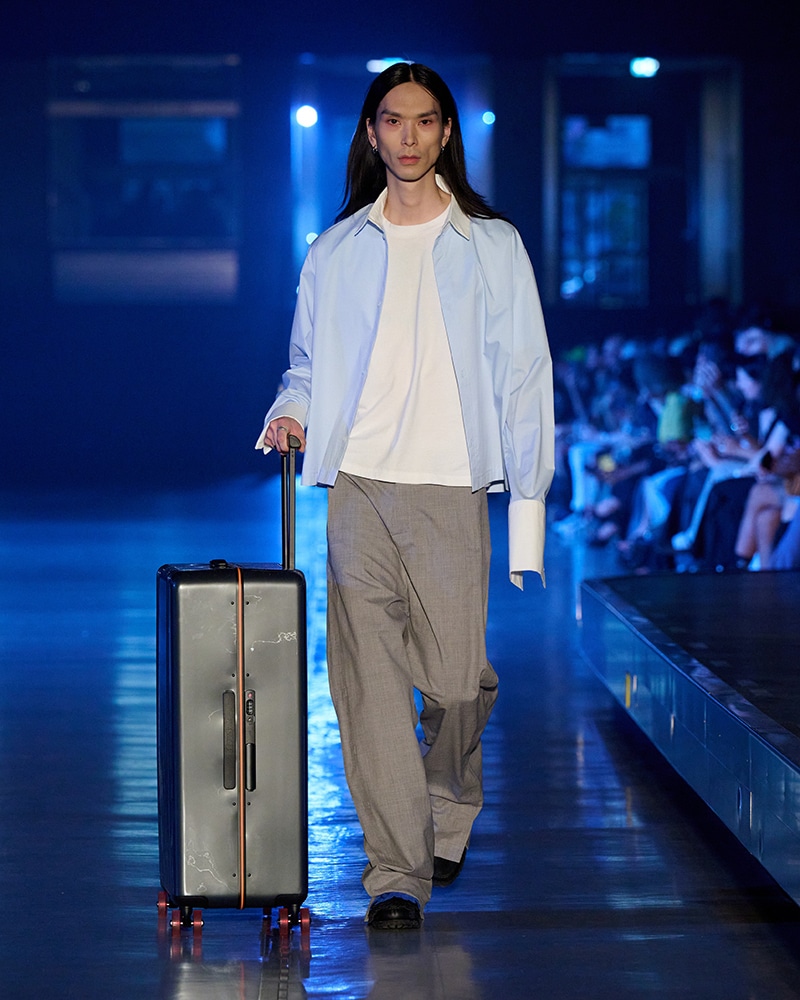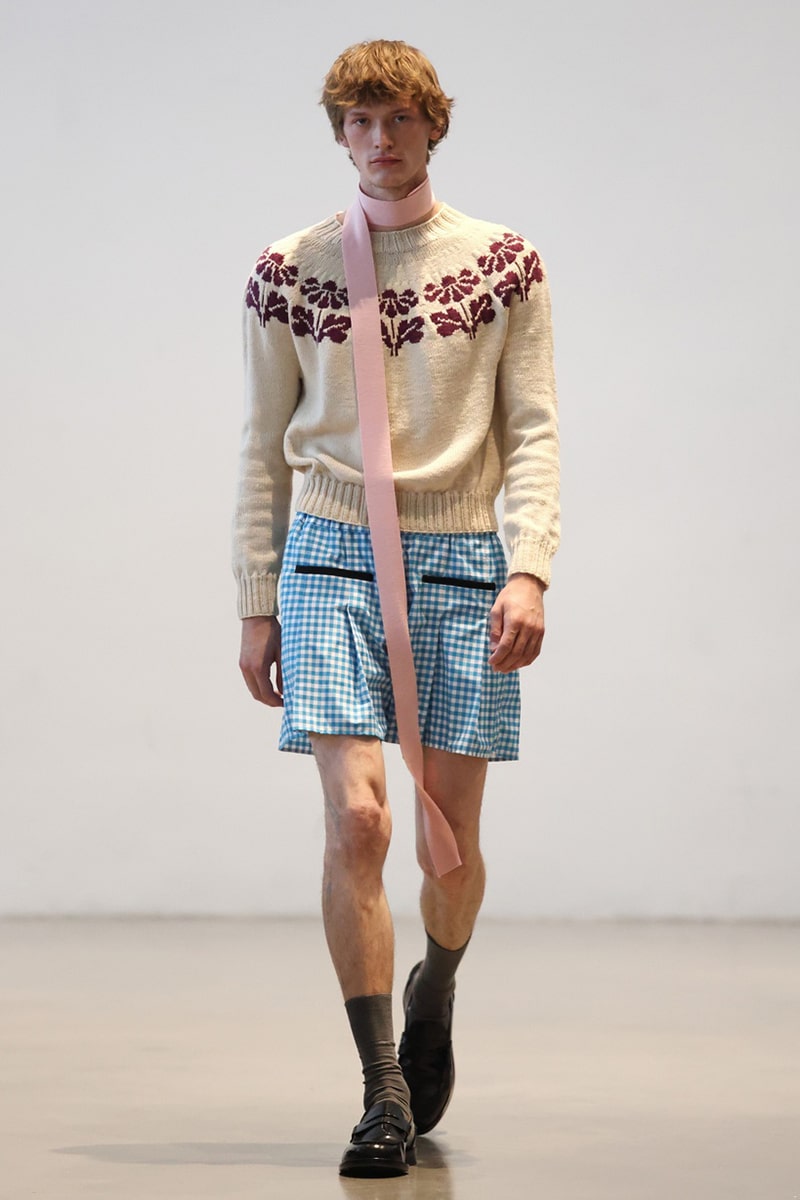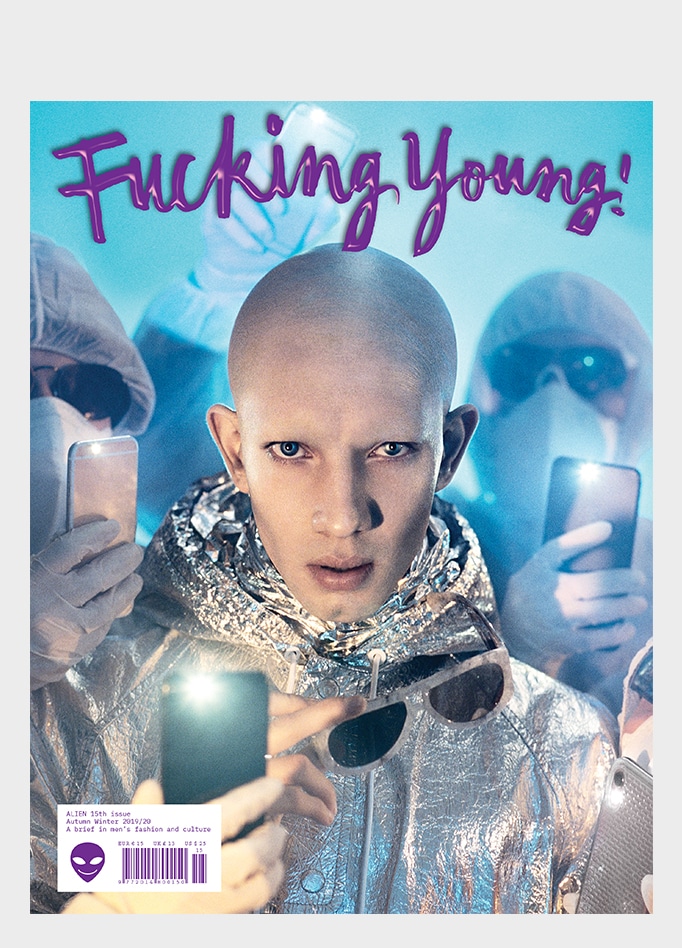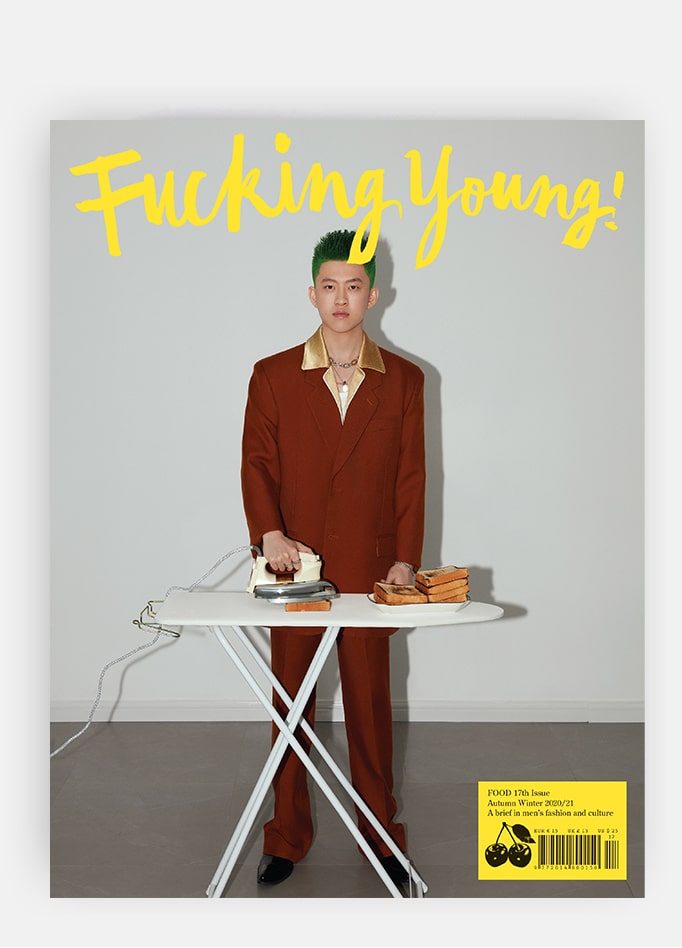
Julien David
It all started in 1997 when Julien David, back then in his early twenties, left his native Paris for New York to attend short courses at Parsons School in interior design, product design, and fashion. He quickly felt he was enjoying the latter more than the rest, so he decided to enroll for a two-year program. As he says, it is his instinct that guides him when it comes to travel and try out new places. So, after having worked for Narciso Rodriguez and Ralph Lauren Purple Label, he again followed his guts and moved to Tokyo in 2006 where a couple of years later he launched his eponymous label starting with a scarves collection. Since the very start, he foresaw that synthesis of high and low that he feels has now become part of fashion in general. Now doubt that if you look at how many luxury houses have lately collaborated with sportswear brands, you couldn’t agree more with him. The Louis Vuitton x Supreme collection that debuted a few days ago in dedicated pop-up stores in Sydney, Seoul, Tokyo, Beijing, Paris, London, Miami and Los Angeles is just the latest case in point. I wrote to Julien before Paris Fashion Week kicked off last month, to talk with him about his path and his signature approach to designing clothes, always trying to find a new perspective through which fashion is presented. When I saw his show a few days later, I immediately realized how much his words were a premonition of that personal view on normality and the everyday wardrobe which had just gone down the catwalk.

Julien David SS18
Hi Julien! Why did you feel that Tokyo was the right place to establish your own business and how does the city inspire your work?
Hi! I started my brand after living in Japan for about two years. I noticed they had a fantastic infrastructure to make clothes and weave fabrics of all kind so I thought it could be possible to do interesting things there.
I have established a way for me to work in Japan with people that I like, and things run now quite smoothly. I do love the city but I don’t intentionally reference it in my work. It’s just that I spent a lot of time there so I think it naturally comes through.
Which is your favorite place in Tokyo and why?
There is a hidden part of Meiji Jingu Park where you can find a bridge and a river. It is steps away from the busy Shinjuku area but is very peaceful. Surely it might be my favorite spot.
How does your creative and editing process usually work?
I like to take notes of things that might be interesting for me to talk about in my collection and then, while I’m not especially thinking about it, like when I’m with some friends or when I go somewhere new, I evaluate these ideas to see if they are still relevant in a different context and can possibly be the basis of something more substantial.

Julien David SS18
How does the every day inspire you?
I think the challenges of having to run a brand naturally forces you to integrate your everyday life in it. I guess it becomes the air you breathe. It is an ongoing mission where you have little moments of joy and pain, questions and revelations!
How would you exactly describe your personal vision?
When it comes to the process of creating my collections, I tend to change the angle every season. For instance, one season I will look at military clothes exclusively and objects or details and that would be the starting point of the collection. Another season I might sketch more or less abstract or maybe be inspired by just a word or an idea and nothing visual. This way of changing the rules keeps me interested in the act of creation and I believe can produce unexpected cool outcomes. My personal perspective appears in the results, which always reflect my taste and the tone I like. Mine is not a typical luxury brand, it’s something else and is continuously evolving.

Julien David SS18
You worked jointly with French architect firm Ciguë for designing both your Tokyo flagship store and the pop-up you recently opened in Kyoto. What about these two experiences? Is architecture something that you look to for inspiration?
The physical representation of a brand inside a space is very important because it is the environment in which a person can experience your clothes. I was lucky to meet the architects behind the firm Ciguë. We come from the same generation and share the same ideas and we both like to challenge pre-conceived ideas.
The past seasons Frédéric Sanchez has created the soundtracks of your shows. How did this collaboration start? Are you also into music?
I have worked with Frédéric Sanchez, with Michel Gaubert and Ed Banger Records in the past for my shows, that I all met through work and acquaintances. I love music and I enjoy interacting with these amazing geniuses. It is very hard to find the track that takes your collection to the right place and convey the proper feeling. You must find people who deeply understand what you are trying to say and can help you enhance it with sounds.
As many other brands, it’s been three seasons now that you started to show both womenswear and menswear together. Why did you decide for this formula and how do you think it is better in terms of workflow and in dealing with buyers and the press?
The fashion system is a bit broken and one year ago I decided I would do what I feel is right for me instead of following the current four fashion weeks per year. I’m not sure if it is the perfect answer, but at the moment it does make more sense for us because we can deliver our clothes earlier and save on huge production costs. We are doing it this way and the press is starting to adapt to it too. It is all changing little by little.

Julien David SS18
Today our industry is facing many uncertainties due to the impact of the digital age, the fashion system rethinking its own rules and the worldwide political situation (I’m thinking for example about the economic effects of the Trump presidency, terrorism or the recent news of Qatar being isolated by other Middle East countries). What would be your advice for young designers starting their career in such a kind of environment?
I would advise them to start slowly because you only have one beginning and it is important to do it right. Maybe if they can work for a few years to observe how other brands operate it might be of a huge help later on.
As far as the situation of the world is concerned, I think there always are challenges ahead but through hard work and consistency, you can eventually make it through no matter what. No one can stop you to accomplish what you set yourself for.
It’s been ten years now that you launched your eponymous label. What’s the one thing you learned over this both personal and professional journey?
Yes, almost ten years. I learned that nothing is set and that you must find a way to be happy in your life and in your work fighting to keep it that way. Over and over again.

